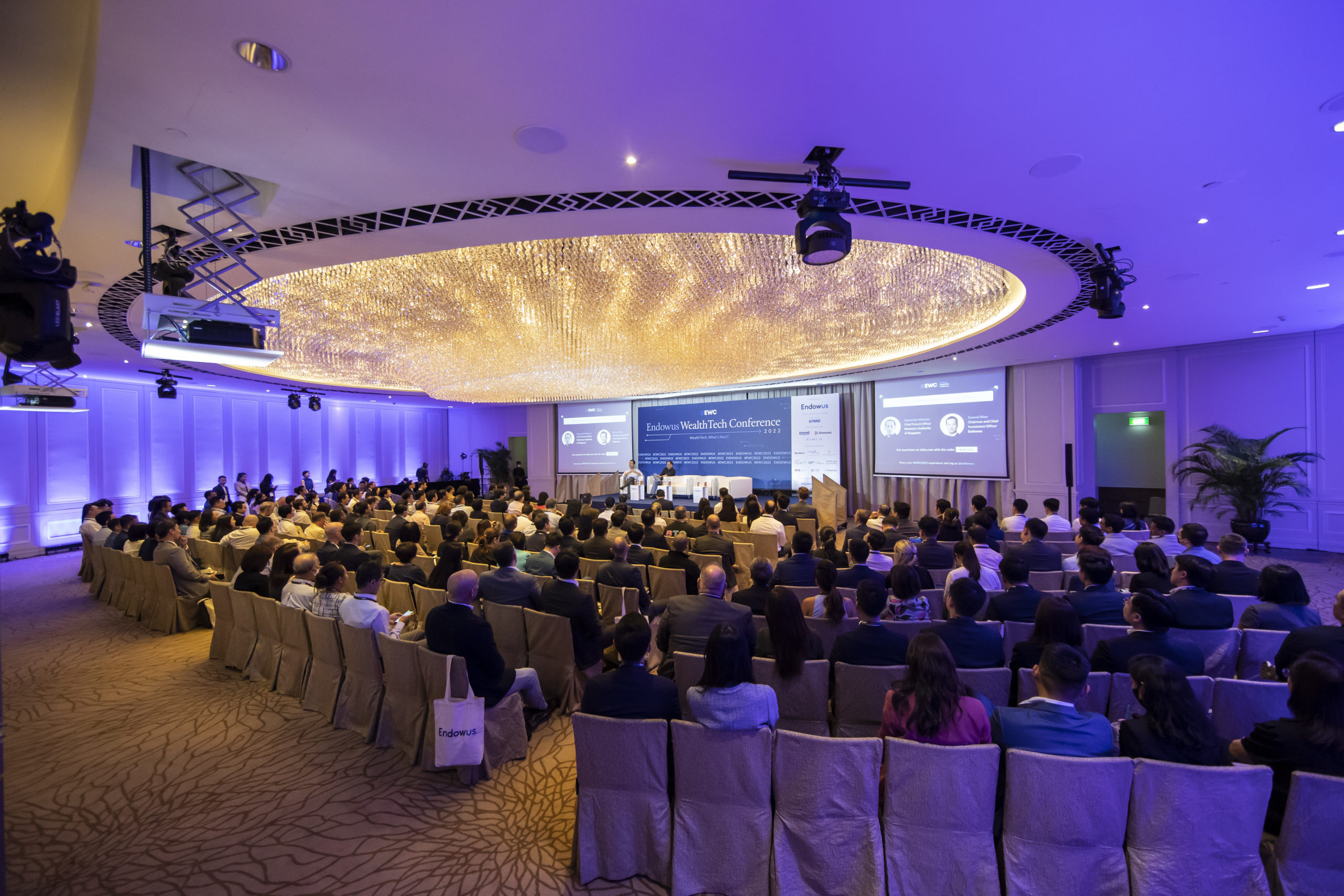London-based startup Primer touts itself as the world’s first automation platform for payments and commerce. Launched in 2020 by former employees of PayPal Paul Anthony and Gabriel Le Roux, Primer specializes in developing payments and commerce infrastructure for merchants. With a global headcount of 200 spread across 30 countries, the firm has raised over USD 74 million and is backed by Iconiq, Accel, Balderton, Seedcamp, Speedinvest, and RTP Global.
KrASIA spoke with Kailash Madan, Primer’s APAC head of sales, to find out how the firm “future-proofs” merchants.
This interview has been consolidated and edited for brevity and clarity.
KrASIA (Kr): Can you encapsulate what Primer does?
Kailash Madan (KM): Essentially, what we do is help merchants by providing them with an infrastructure for their entire payments and commerce stack and building on that framework to generate more value-added services for them. This way, our merchants receive access to a number of providers, whether for payments, commerce, shipments, fraud, or reconciliations, all through a single unifying infrastructure created by Primer, and therefore reduce costs and improve operational efficiency.
In short, what we can offer merchants is the ability to future-proof their payments and commerce stack. Today their problems may not be that significant because, for instance, they’re operating in only one market. But five years down the road, if they want to be five times their current size, that’s where future-proofing comes in.
These merchants need to start asking the question: if we want to be successful, how can we achieve this by investing in minimal infrastructure?
Kr: What are your flagship products?
KM: In terms of payments automation, we provide merchants access to end-to-end payment stacks, including “Buy Now, Pay Later” (BNPL). Through Primer, merchants get access to an ecosystem of payment partners, which helps accelerate their global market strategy.
We have also extended this to commerce: in shipping, communication with customers, reconciliation, etc. We automate all of these for our merchants.
Kr: What are your major markets?
KM: We’re currently serving three main geographical areas: APAC, the EU, and North America.
For now, it’s in Asia where we see exciting growth opportunities.
Kr: In what way is Asia an attractive market for Primer?
KM: Asia has a fragmented ecosystem where different countries have different payment methods and regulations. From a merchant perspective, it’s extremely difficult to connect with each one of them, and this is where we see the most opportunities. In fact, we’ve been focusing on APAC over the past year.
If merchants want to be successful in Asia, they need to manage all these payment options and regulatory hurdles; there is no single payments provider who can provide merchants with everything that they need across Asia. And we allow merchants to connect to all these providers through our open and agnostic platform.
Kr: Contrarily, one might also argue that Asia’s fragmented markets and regulatory frameworks could lead to complexities, hence more challenges for Primer’s business operations.
KM: The reason we see Asia’s fragmented ecosystem as more of an opportunity than a challenge is that we do not get involved in the flow of funds. We only connect merchants with payment partners for the processing of funds.
Because we don’t really handle the funds, we are not regulated in most of the markets we operate in. We leave it to our partners to handle the licensing and regulations. By virtue of that, we can abstract the complexity from regulations and fragmented ecosystems.
Kr: Any reason why Primer does not want to get involved in the processing of funds?
KM: The play for us is very clear, which is to remain an infrastructure provider. We’re hyper-focused on creating the technical interface for merchants to succeed in their business. We started with payments, and now we have expanded into commerce.
If we were to go into payments and get into the flow of funds, that level of expansion would be much harder.
Kr: Tell us about some major challenges that you face as an integrated commerce and payments infrastructure provider.
KM: One challenge is having to spend a lot of time educating merchants on the value of our platform. We are the world’s first payments and commerce automation platform so being the first in this field, there is a need to educate the market.
The other challenge has to do with growth. During COVID-19, we witnessed consumers migrating from offline payments to digital payments. But now the trend is heading back to pre-pandemic levels, and online payments are not growing as fast as they did in 2021.
While digital payment volume is expected to triple in Southeast Asia over the next three to four years, growth has slowed.

Kr: How about cybersecurity? How challenging is it for Primer to manage that aspect for its merchants?
KM: Because we don’t actually get involved in the flow of funds and rely on our partner network to handle that for our merchants, we are not as exposed to hacking at the fund or settlement level.
Having said that, we’re involved in a few aspects of payment processing, such as card tokenization. We are PCI DSS level 1 compliant, the highest level of PCI certification. We store sensitive card information of customers in a centralized vault in a very secure manner on the cloud.
We’ve also incorporated 3D Secure, and we’re compliant with the protocol of 2-factor authentication for our merchants.
Kr: What about fraud protocols? Is Primer able to detect and prevent fraud for its merchants?
KM: We work with a number of partners in fraud detection and prevention. Any merchant that wishes to add fraud prevention as part of their transaction processing life can easily do so through our infrastructure solution, and screen transactions based on their risk appetite.
Primer is able to connect merchants to a number of such fraud prevention providers and can easily configure their workflows to ensure that only legitimate transactions are carried out. Merchants don’t need to integrate directly with these fraud prevention providers; we build and maintain those integrations for them.
Kr: Do you see any trends in the retail and commerce sector, say five years, from now?
KM: We believe there will be a shift to digital payments; the number of people paying digitally will increase. This means Asia will become a market that is more important. There is a large chunk of people living in Asia where the population is young. More people are also having access to mobile devices, which means that we can expect to see more mobile payments. Asia can expect to see huge growth in digital transactions.
With that growth, non-card payment methods will become more important. One reason is that card payments are slightly more expensive for merchants. Another is that since more payments in Asia are expected to take place through mobile devices, transactions such as BNPL and bank transfers will become more important in this part of the world.
In the commerce space, we are seeing merchants working with a number of service providers and tools, which comes with its own challenges, for example, in reconciling the reports across different tools and distilling insights from the reports and data to drive business decisions. This has been another area that we’ve been investing heavily in to drive meaningful insights that business or finance users need to make the right decisions and capture the maximum growth opportunities in a specific market.

Kr: Web3 is touted as the future of the Internet. How will Primer, as a provider of next-generation infrastructure, keep pace with the burgeoning Web3 ecosystem?
KM: Web3 development is actually very relevant to Primer in two aspects.
We will allow merchants to accept payments in crypto, and this is expected to grow over the next three to five years. How do we ensure that our merchants can capture crypto payments? For this, we have developed partnerships with providers such as Coinbase to allow our merchants to accept crypto payments at checkout.
The second aspect is that we are working with a number of crypto merchants to power their payment stacks. So indirectly, we’re also fuelling the growth of crypto by working with these merchants so they can grow the ecosystem of people within the Web3 space.
Kr: Tell us about the recent partnership announced between Primer and Fazz.
KM: This partnership is driven by the huge demand for non-cash payment methods such as PayNow.
PayNow is a payment method with more than 80% coverage among Singaporean residents. Many companies also use PayNow as well. Hence, for regional merchants who want to sell in Singapore, PayNow is an extremely important payment method for them to generate additional revenue. With Fazz offering PayNow, what we aim to do is provide our merchants access to PayNow through Fazz.

